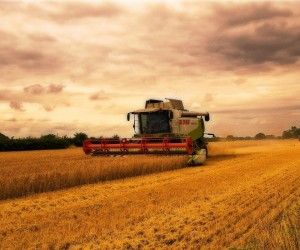
About the Author
Kari Foss
Research Fellow, Alexander von Humboldt Foundation
Kari Foss, Research Fellow, Alexander von Humboldt Foundation
Traditionally reductions to tariffs in trade agreements are transparent and easy to estimate. One of the most difficult issues for liberalizing trade is to manage regulatory or non-tariff barriers. In the current Transatlantic Trade and Investment Partnership (TTIP) negotiations this is clearly seen in terms of agricultural.
Genetically Modified (GM) products are one aspect of growing public opposition to TTIP. In Europe, there is widespread fear that the EU might have to completely open up its markets to the importation and cultivation of GM products. Regulatory differences can persist for years and become burdensome on the governments. This can be overcome but requires time and political will. One solution that could prevent timely negotiations would be a requirement on appropriate labeling; leaving consumers to decide if they want to buy GM products.
The calls for heavy regulation on GM products in the EU have come from groups on both the sides of the Atlantic. Labeling GM foods can prevent the struggle and opposition of fearful consumers. The opportunity for an appropriate discussion GM technology can be given time. As the split between US and EU opinion is apparent towards GM foods, labeling could potentially alleviate some of the concern towards TTIP, enabling a speedier passage of TTIP.
In a world of technology, the internet, and abundant amounts of information, it important to recognize that US and EU citizens are perfectly capable of making their own judgments on what food is good or bad for them. If both parties can agree on labeling requirements, providing consumers with sufficient evidence-based information, it could provide an avenue for the agricultural sector to handle non-tariff barriers. GM foods should not be a major set back in the TTIP talks. The US will have to adhere to the public demands for labeling, as well as ensuring all food products remain subject to local labeling and packaging regulations.
Regulation of the agricultural sector a major point of contention and is stalling the passage of TTIP. Rather than banning particular products from the market or changing well-founded state regulations; requiring appropriate labeling and leaving the choice on whether to buy GM products to consumers might be the best option for the EU and US to move forward. Labeling is just one conceivable and plausible route for TTIP agreement on agriculture.
Tags: Agriculture